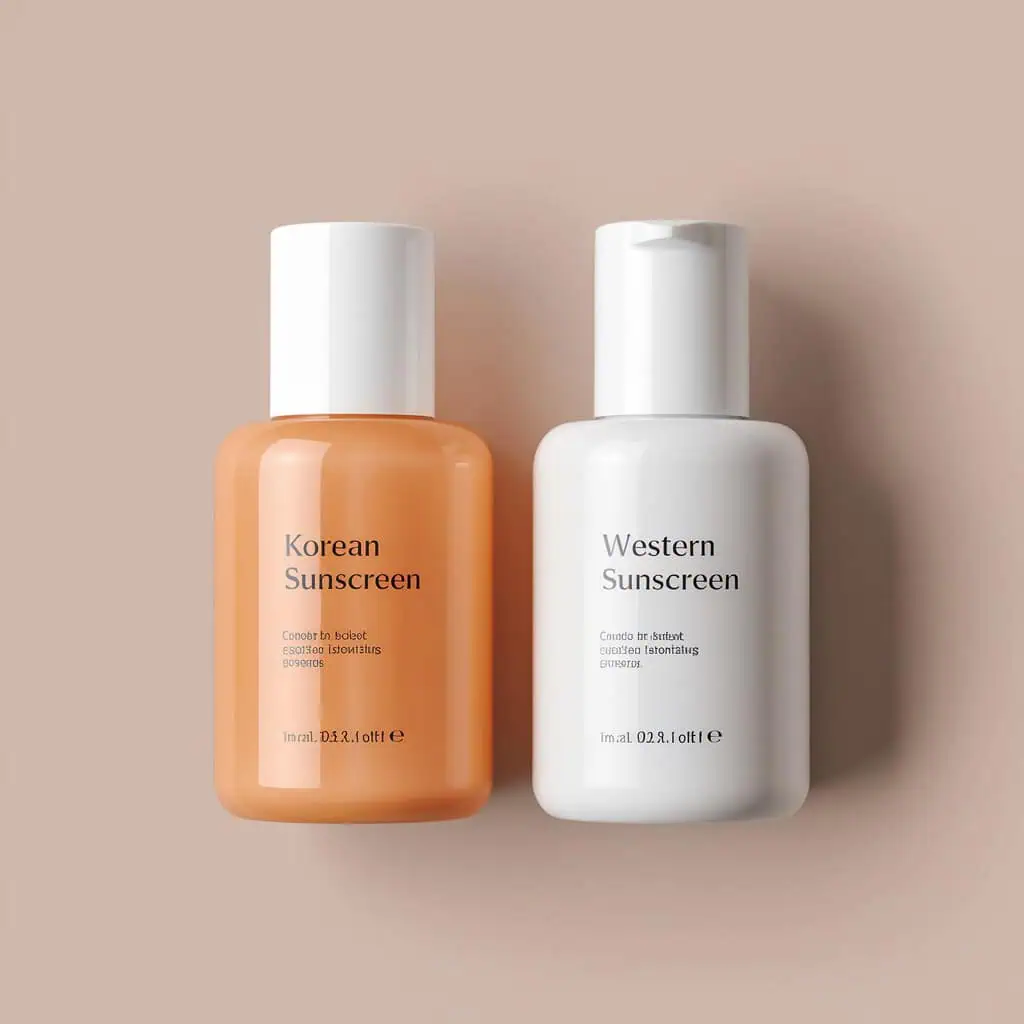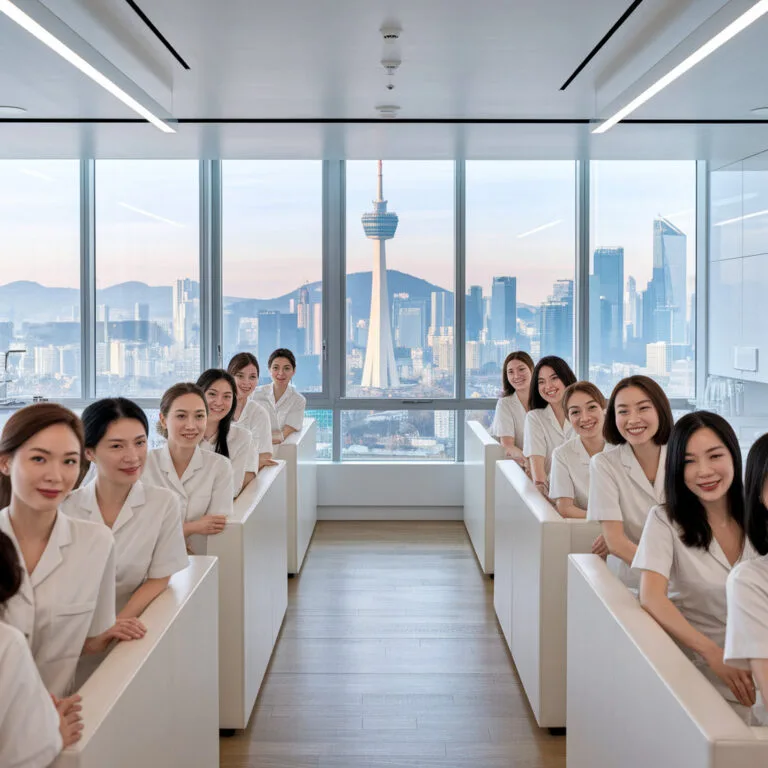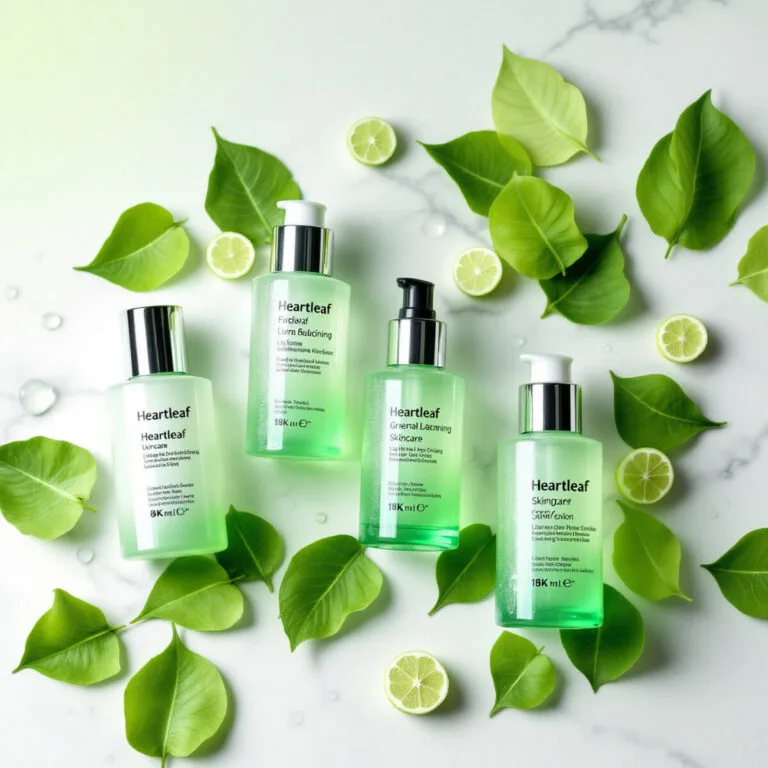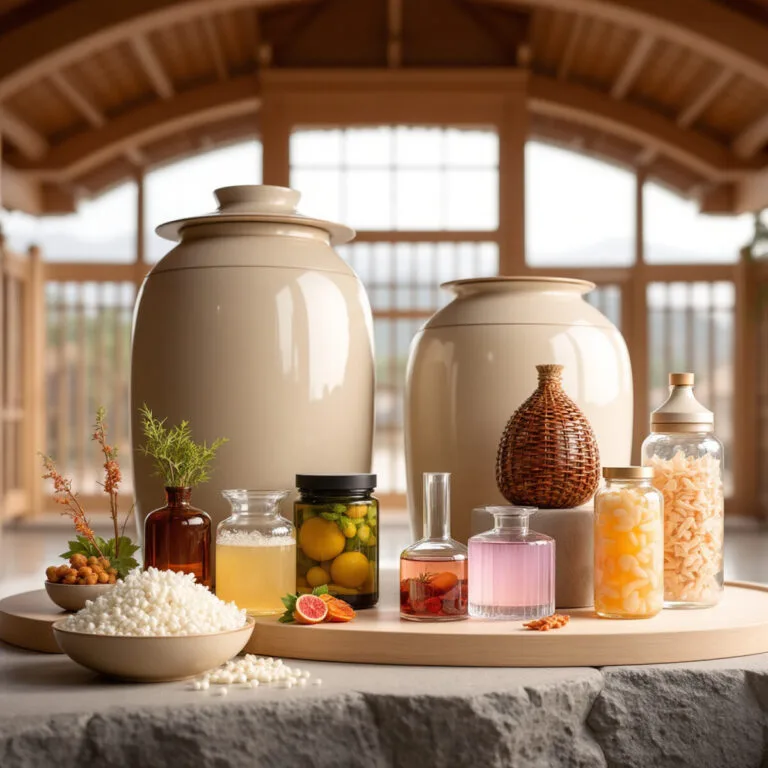Korean vs. Western Sunscreens: Which One is Better for Your Skin?
🌟 The K-Beauty Sunscreen Takeover: What’s the Hype About?
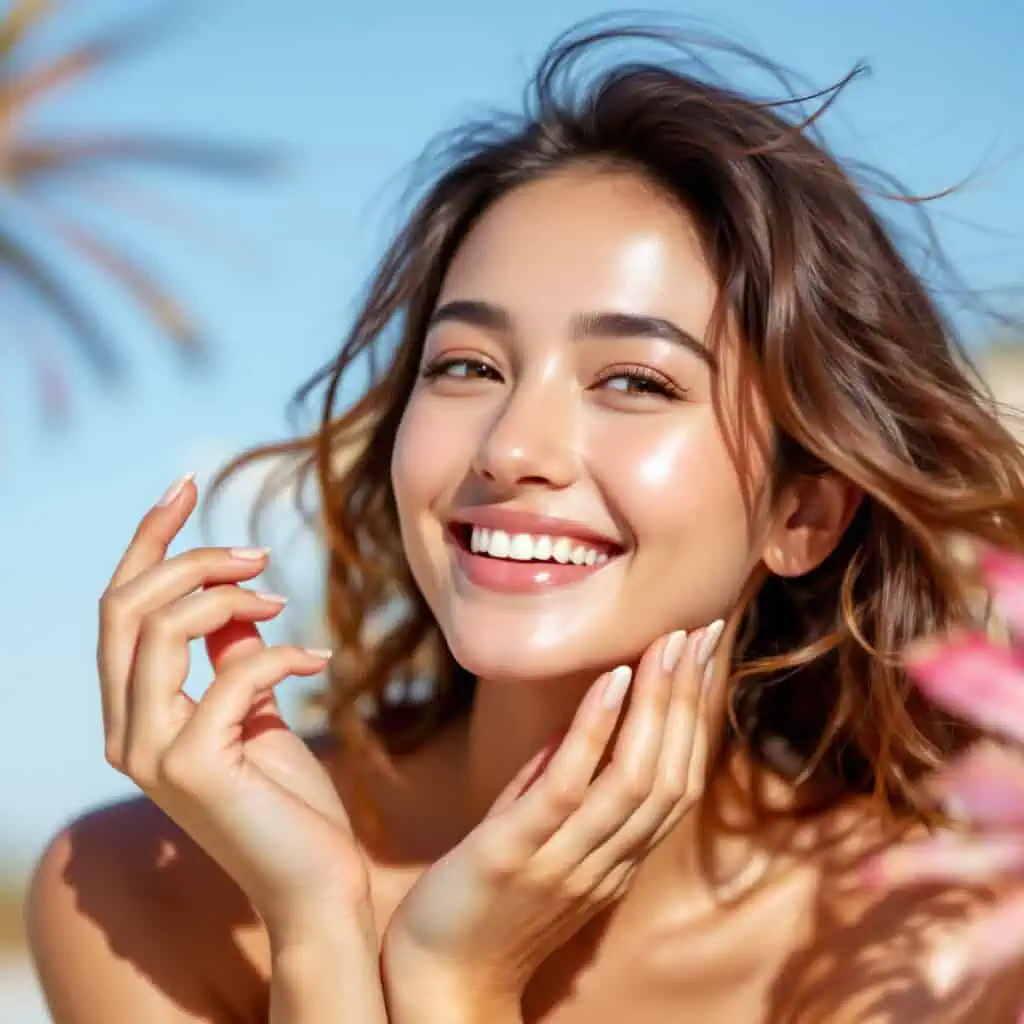
Hey, skincare lovers! Jay Kim here. If you’ve been scrolling through TikTok or Reddit lately, you’ve probably seen people raving about Korean sunscreens. They’re lightweight, non-greasy, and blend like a dream—so much so that some users are ditching their Western sunscreens altogether. But are Korean sunscreens really better, or is it just a trend? Korean vs. Western Sunscreens. Let’s break it down!
☀️ Korean vs. Western Sunscreens: The Key Differences
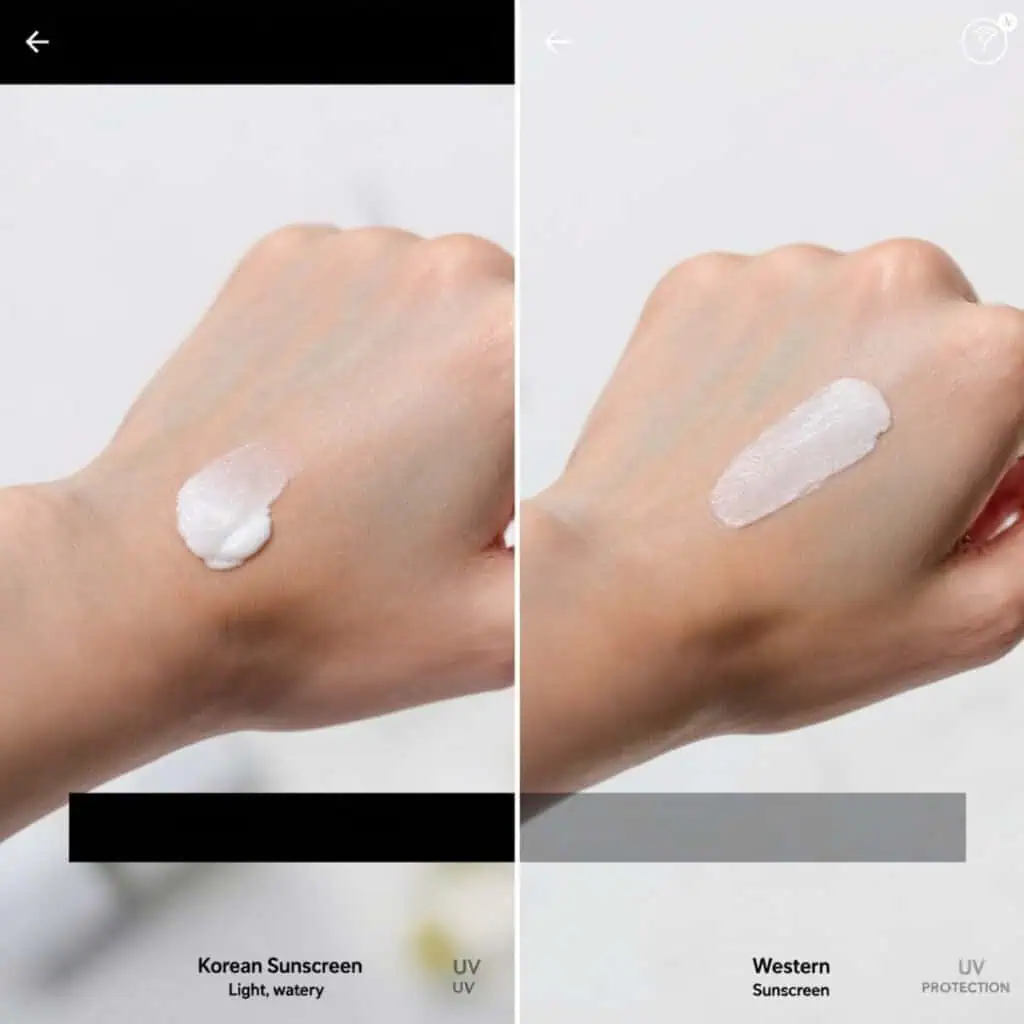
Before we get into which one is “better,” let’s talk about what actually sets them apart.
🔹 UV Protection Standards
- Korean Sunscreens: Regulated by the Korean Food and Drug Administration (KFDA), focusing on broad-spectrum protection (UVA & UVB) with advanced PA ratings (PA+, PA++, PA+++, PA++++).
- Western Sunscreens: Regulated by the FDA (USA) and EU standards, mainly focusing on SPF but often lacking clear UVA protection ratings.
🔹 Filters & Ingredients
- K-Beauty Sunscreens: Use newer organic (chemical) UV filters like Tinosorb S, Uvinul A+, and Mexoryl SX, which offer better UVA protection, stability, and no white cast.
- Western Sunscreens: Often rely on older filters like oxybenzone and avobenzone, which may degrade faster and cause irritation.
🔹 Texture & Feel
- Korean Sunscreens: Known for their lightweight, watery, or gel-like formulas, making them great for everyday use, even under makeup.
- Western Sunscreens: Tend to have thicker, more occlusive textures, which can feel greasy, especially in humid climates.
🔹 Multifunctionality
- K-Beauty Sunscreens: Often infused with hydrating ingredients (hyaluronic acid, centella asiatica, niacinamide), meaning they double as a skincare step.
- Western Sunscreens: Usually focus solely on sun protection, with fewer skin-benefiting ingredients.
So far, it’s easy to see why many skincare enthusiasts prefer Korean sunscreens. But does that mean they’re for everyone? Not necessarily.
🔍 Which Sunscreen is Best for Your Skin Type?

💧 Oily & Acne-Prone Skin → Go Korean
- Look for: Gel-based, mattifying formulas with oil-control ingredients.
- Best pick: Beauty of Joseon Relief Sun: Rice + Probiotics SPF 50+ PA++++
🌿 Dry & Sensitive Skin → Both Can Work
- Korean: Choose hydrating sunscreens with ceramides or cica.
- Western: Try mineral sunscreens with zinc oxide for sensitive skin.
- Best pick (Korean): Round Lab Birch Juice Moisturizing Sun Cream SPF 50+
- Best pick (Western): La Roche-Posay Anthelios Melt-in Milk Sunscreen SPF 60
🌞 Outdoor Enthusiasts & Long-Wear Protection → Western Sunscreens Might Be Better
- If you’re swimming, hiking, or sweating a lot, Western sunscreens with water-resistant formulas last longer.
- Best pick: Neutrogena Ultra Sheer Dry-Touch SPF 70
🌍 Top Korean vs. Western Sunscreens: The Showdown
| Category | Best Korean Sunscreen | Best Western Sunscreen |
|---|---|---|
| Best for Everyday Use | Beauty of Joseon Relief Sun SPF 50+ | La Roche-Posay Anthelios SPF 60 |
| Best for Oily Skin | Isntree Hyaluronic Acid Watery Sun Gel | Supergoop! Unseen Sunscreen |
| Best for Dry Skin | Round Lab Birch Juice Sun Cream | CeraVe Hydrating Sunscreen |
| Best for Sensitive Skin | SKIN1004 Centella Hyalu-Cica Sun Serum | EltaMD UV Clear SPF 46 |
| Best for Outdoor Sports | Abib Airy Sunstick SPF 50+ | Neutrogena Ultra Sheer SPF 70 |
While Korean sunscreens dominate in texture, comfort, and ingredients, Western sunscreens still hold their own for longer wear and water resistance. So, the real question is: What do you prioritize?

🤔 Frequently Asked Questions 🤔
✅ Final Verdict: Which One Should You Choose?

If you want: Korean vs. Western Sunscreens
✔️ A daily sunscreen that feels weightless → Go Korean
✔️ A sunscreen that doubles as skincare → Go Korean
✔️ Heavy-duty water resistance for outdoor activities → Go Western
✔️ A dermatologist-recommended mineral sunscreen → Go Western
At the end of the day, both Korean and Western sunscreens have their strengths. If you’re still unsure, why not try both? Your perfect sunscreen depends on your skin type, climate, and lifestyle.
What’s your go-to sunscreen? Drop your faves in the comments below! 🚀✨
🔗 Suggested Internal Link Subheadings

